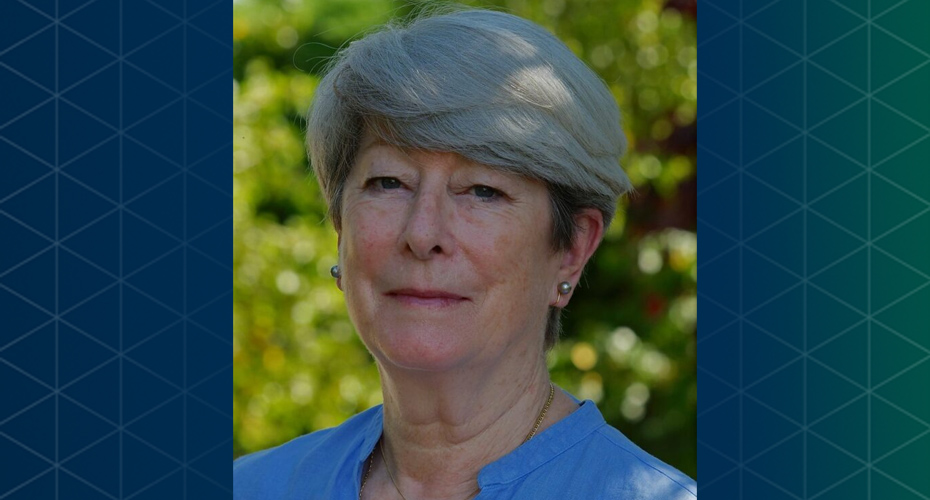Anne Harris | France

Anne Harris, née Hennon, was born in Dublin in 1950, educated at Manor House School in Raheny, University College Dublin and Harvard Kennedy School. She worked in a senior position at the European Parliament in Luxembourg for 24 years before returning to Dublin in the late 1990s. She has four sons and four granddaughters who live in Ireland, Luxembourg, the United States and Argentina. She currently lives in France with her husband.
Tell us about your time in UCD?
I studied Commerce, somewhat by accident. I had enrolled to do a language degree, but found the mix of subjects on offer in the B.Comm – foreign language, law, business administration – more appealing and switched faculties in my first week. My first year in UCD, 1968, was spent in Earlsfort Terrace and was marked by the Gentle Revolution. They were heady times, and we seem to have spent most of our time protesting and occupying buildings. I also became involved in the Commerce and Economics Society and got elected to the SRC. Somehow, we also managed to study and pass exams. Then, in second year, the Commerce faculty was moved to Belfield and everything changed. We were far from the heart of things, isolated on an unfinished campus and had to make our own entertainment, but I suppose that also helped to create a bond between us and I still have close friends from that time.
Tell us about your early career?
I never intended to become a civil servant, but was lucky to have had Professor Patrick Lynch for Public Administration in my final year and he was an inspiration. After a short stint in the Dáil, I was offered a position in the European Parliament in Luxembourg. Ireland had just joined the EU, and it was the run-up to the first direct elections, so it was an exciting time.
What decisions have you made in your working life which were directly impacted by your time as a student?
Getting involved. I think as a student I got a taste for extra-curricular activities – staff representation when working, then voluntary work and now, retired, elected to the local council!
What have been the most challenging aspects of your career?
Juggling family and work. I travelled a lot and the logistics were at times complicated.
What is the proudest moment of your career to date?
Being invited to work for Simone Veil when she became President of the first directly elected European Parliament. She was an amazing role model.
Tell us about your new book and what inspired you to write it?
Although it draws on my own story, it’s a novel and the characters are fictitious. I got pregnant in my second year. Like many young women in that situation at the time, I went to a mother and baby home, and my baby was adopted. I came back to college as if nothing had happened and hardly anyone knew – hence the title, Unspoken. I found my son in 1995 and we have a great relationship. I wrote the book to celebrate our 25th anniversary this year.
You self-published your book, can you explain that process and do you have any advice for aspiring writers who are having difficulty getting published?
I’m 69 years old and this is my first novel, so I knew from the outset that the chances of a publisher taking an interest were very slim. I spent a lot of time writing it and wanted to have it published quickly as I had a personal deadline of July of this year. Some colleagues of mine had already self-published and I was impressed by the results, so I decided to give it a go. There are quite a few options available when self-publishing. It’s possible to do everything yourself, but unless you are artistic, creative and an IT whiz, and are prepared to spend hours learning how to upload your manuscript onto different platforms, I would recommend investing in professional help. I used a very good proofreader, who also copyedited, and then I handed over the manuscript to a company who helped with the cover, formatting and uploading.
The downside of self-publishing is that you have to do all your own marketing, whereas a traditional publisher would take care of that for you. Hiring a publicist is an option, but can be very expensive.
Have you any further advice for aspiring authors reading this?
If you can, get a mentor. The Irish Writers’ Centre in Dublin offers a mentorship programme and it was a great help to me.
What is the best piece of advice you have ever been given?
Put the big rocks in the jar first! Prioritise.
UCD Alumni
Ardmore House, University College Dublin, Belfield, Dublin 4, Ireland T: +353 1 716 1447 | E: alumni@ucd.ie© 2025 All Rights Reserved